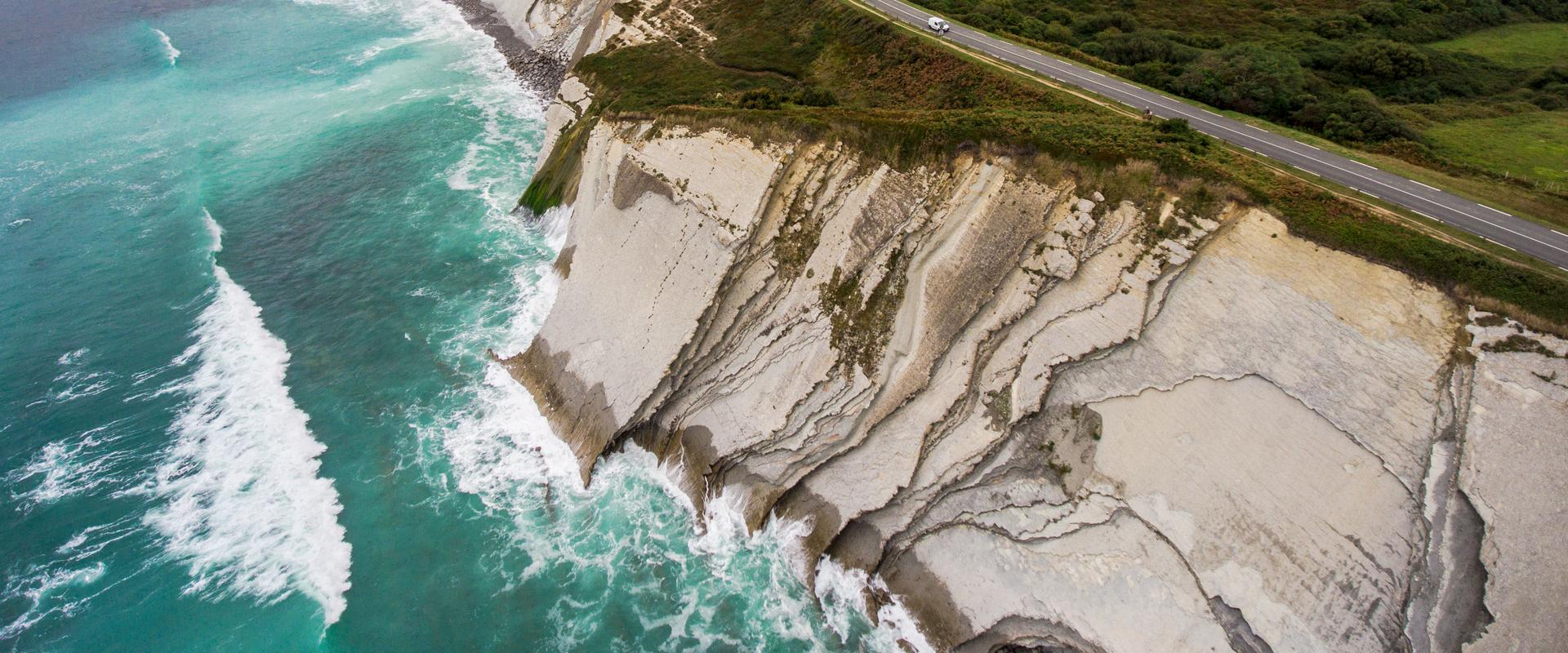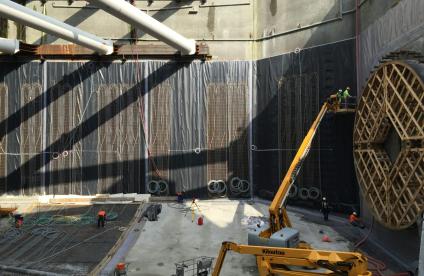
Michel Veunac, Mayor of Biarritz, Alain Rousset, President of the Nouvelle-Aquitaine Regional Council, Emmanuel Macron, French President, and Max Brisson, Vice-President of the Conseil départemental des Pyrénées-Atlantiques, during the handing over of the "Territoires Océan" report at the G7 summit in Biarritz.
© Nouvelle-Aquitaine
In preparation for the G7 summit in Biarritz, 30 scientists conducted a research review, on behalf of the New Aquitaine Region on the impact of climate change on coastal risks and on the policies and strategies to be implemented to adapt to these changes. The review was coordinated by researchers from Irstea, BRGM via the Observatoire de la Côte Aquitaine, and the UMR LIENSs (CNRS - University of La Rochelle) and EPOC (CNRS - University of Bordeaux) joint research units.
The review, entitled "Changement climatique et risques littoraux : apports scientifiques pour une adaptation durable et juste” [Climate change and coastal risks: scientific contributions for sustainable and equitable adaptation], is a major component of the document "Territoires Océan: Acteurs de solutions” [Ocean regions, stakeholder solutions], presented at the G7 in Biarritz on Saturday, 24 August, 2019 to Alain Rousset, President of the Nouvelle-Aquitaine Region, then to the French President, Emmanuel Macron.
Erosion and marine flooding: two major hazards affected by climate change
Climate change poses threats to many regions of the world with very diverse trends: rising temperatures, extreme weather events, and rising sea levels. These risks are particularly high in heavily populated coastal areas. The challenges related to physical risks, and the need for coherent adaptation strategies and measures for coastal areas are major scientific and political issues in the Nouvelle-Aquitaine region.
The report focuses on two major hazards affected by climate change:
- marine erosion, i.e. the receding coastline
- and marine flooding, i.e. the temporary or permanent flooding of a coastal area.
In particular, it recommends restoring and preserving coastal ecosystems to mitigate the effects of flooding and erosion, experimenting with solutions based on natural ecosystems and their resilience, and including in the discussions various scenarios of climate and socio-economic change.







